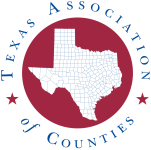Speaker: Dr. Nicholas Longnecker, MD CCHP-CP, CorrHealth | Jails face growing legal exposure tied to inmate medical care, making the relationship with their healthcare provider more critical than ever. In this session, a correctional physician will provide a practical, clinical perspective on how jail leaders can strategically partner with medical providers to strengthen constitutional compliance and reduce liability. Legal professionals will gain insight into how these partnerships can support defensible practices, improve outcomes in litigation, and serve as a critical component of institutional risk management strategies.
Speakers: Frank Zabarte, PNG Cyber and Eric Magee, Allison, Bass & Magee, LLP | Cybersecurity breaches and system failures in Texas county governments can have serious constitutional implications, potentially exposing counties and officials to civil rights claims. This session will explore how inadequate cybersecurity measures, delayed incident responses, or data exposures can lead to violations of inmates’ and residents’ constitutional rights, including due process and equal protection. Through analysis of recent incidents and case law, attendees will gain a clear understanding of the intersection between cyber risks and liability, as well as best practices for mitigating legal exposure while enhancing cyber defenses.
Speaker: Kevin Cullen & Casey Cullen, Cullen, Carsner, Seerden & Cullen, LLP | First Amendment retaliation claims continue to present complex legal challenges for counties, particularly in employment, law enforcement, and public discourse contexts. This session will explore the evolving legal standards surrounding protected speech, adverse action, and causation — alongside recent federal and state appellate decisions that impact how local governments defend against these claims. Attendees will gain insight into current case law, the nuances of public employee speech, social media implications, and best practices for reducing liability risk while respecting constitutional rights.
Speaker: Brian Miller, Royston Rayzor | The emergency exception under the Texas Tort Claims Act continues to evolve, with recent Texas Supreme Court rulings further shaping how counties and their employees can assert immunity in crisis response scenarios. This session will provide an in-depth analysis of the emergency exception’s legal framework, how courts interpret “immediate response to an emergency,” and what recent decisions signal for future liability defenses. Attendees will examine key case law, practical application in real-world emergencies (e.g., law enforcement, road hazards, natural disasters), and strategies for building stronger immunity defenses in both trial and appellate courts.
Speakers: Robert Davis & Lee Correa, Flowers Davis and James Fuller, Founder, ArenaComms | As plaintiffs’ attorneys adopt more aggressive and media-savvy tactics in law enforcement litigation, defense teams must evolve to match that intensity with strategic, assertive advocacy. This session will focus on building a proactive defense posture — one that begins before a lawsuit is filed. Attendees will explore tactics for early case framing, preserving officer credibility, leveraging video and records effectively, and confronting inflammatory narratives head-on. With practical guidance drawn from recent high-stakes cases, this session will equip county and defense attorneys to respond confidently, control the narrative, and protect officers and agencies from reputational and legal harm.
Speakers: Mike Thompson, Associate General Counsel, TAC and Misty Pahl, Liability Claims Examiner, TAC Risk Management Services | Finalizing a settlement is only part of the battle, especially when Medicare interests and multiple heirs are involved. This session will explore how the Medicare Secondary Payer Act (MSPA) intersects with wrongful death and survival claims, and why failing to identify and include all heirs can create long-tail risks for counties. Attendees will learn how to ensure proper heir notification, align settlement terms with MSPA requirements, and avoid pitfalls like delayed conditional payment recovery or future claims against the county. The session will offer practical tips for defense counsel and claims professionals to structure settlements that hold up — legally, ethically and financially.
Speakers: Matt Matzner and Morgan Vaughan, Crenshaw Dupree & Milam | Contracts with third-party medical providers in county jails can either insulate or expose the county, especially when indemnification clauses are vague, one-sided or unenforceable under Texas law. This session will walk attendees through common contractual pitfalls, recent case law on governmental immunity and indemnity, and key provisions that can help counties shift or limit liability. With a focus on protecting the county’s legal and financial interests, this session will equip legal counsel and contract managers with tools to negotiate smarter agreements, ensure accountability from vendors, and navigate the fine line between risk transfer and assumption.
by Michael Pichinson, General Counsel, TAC

